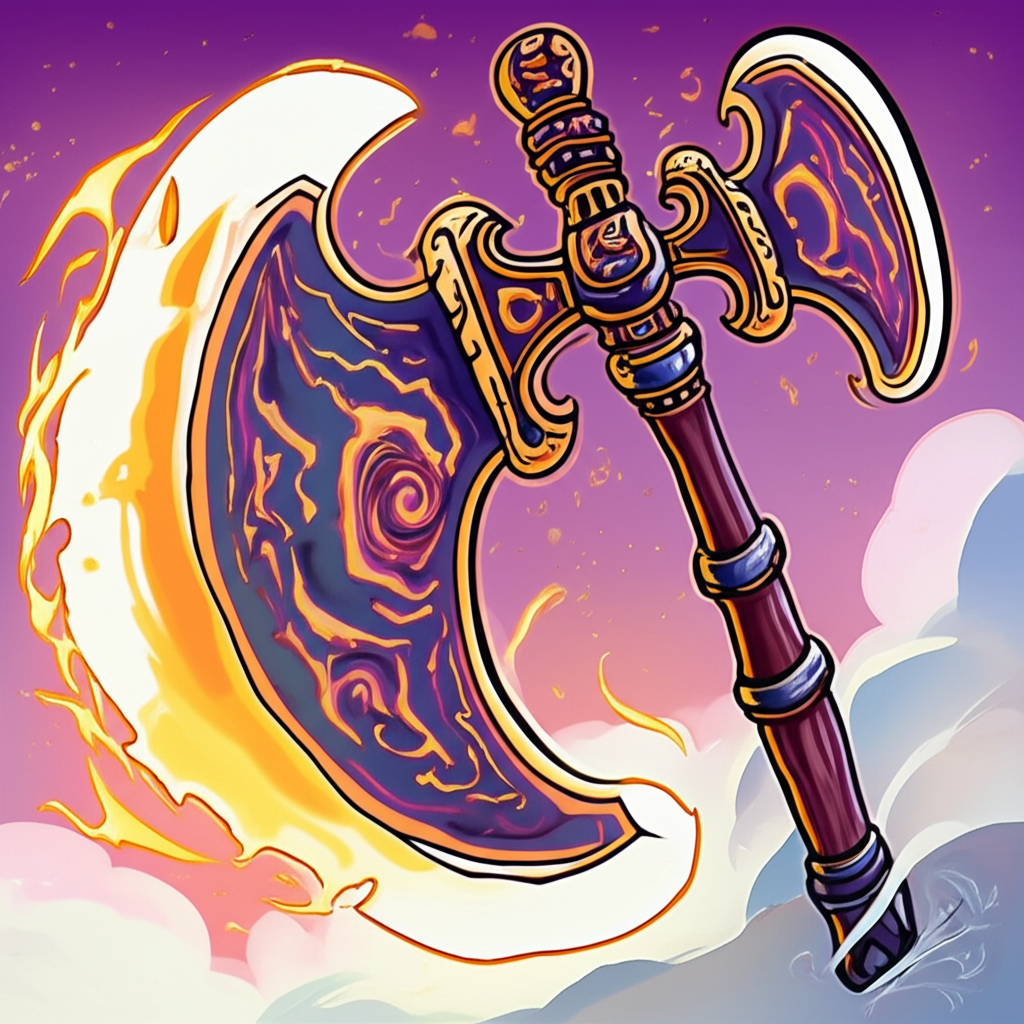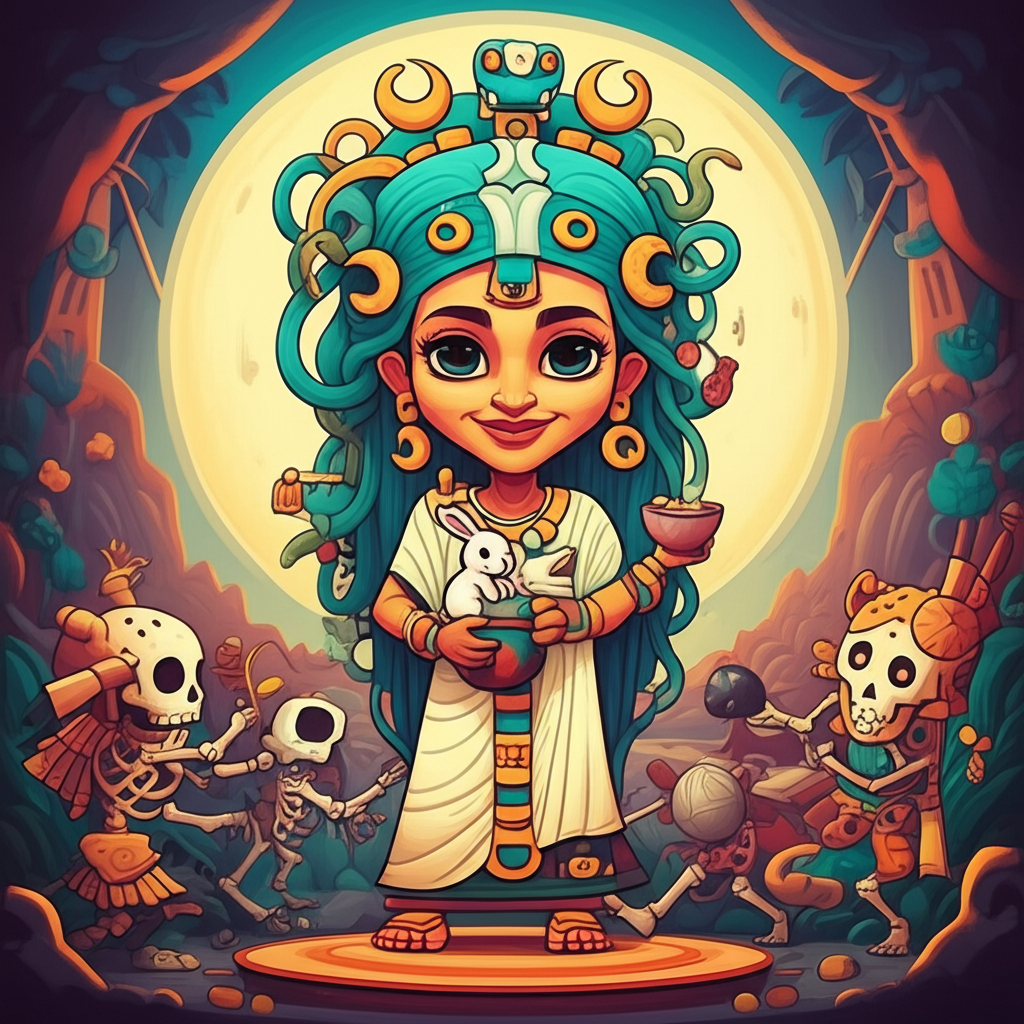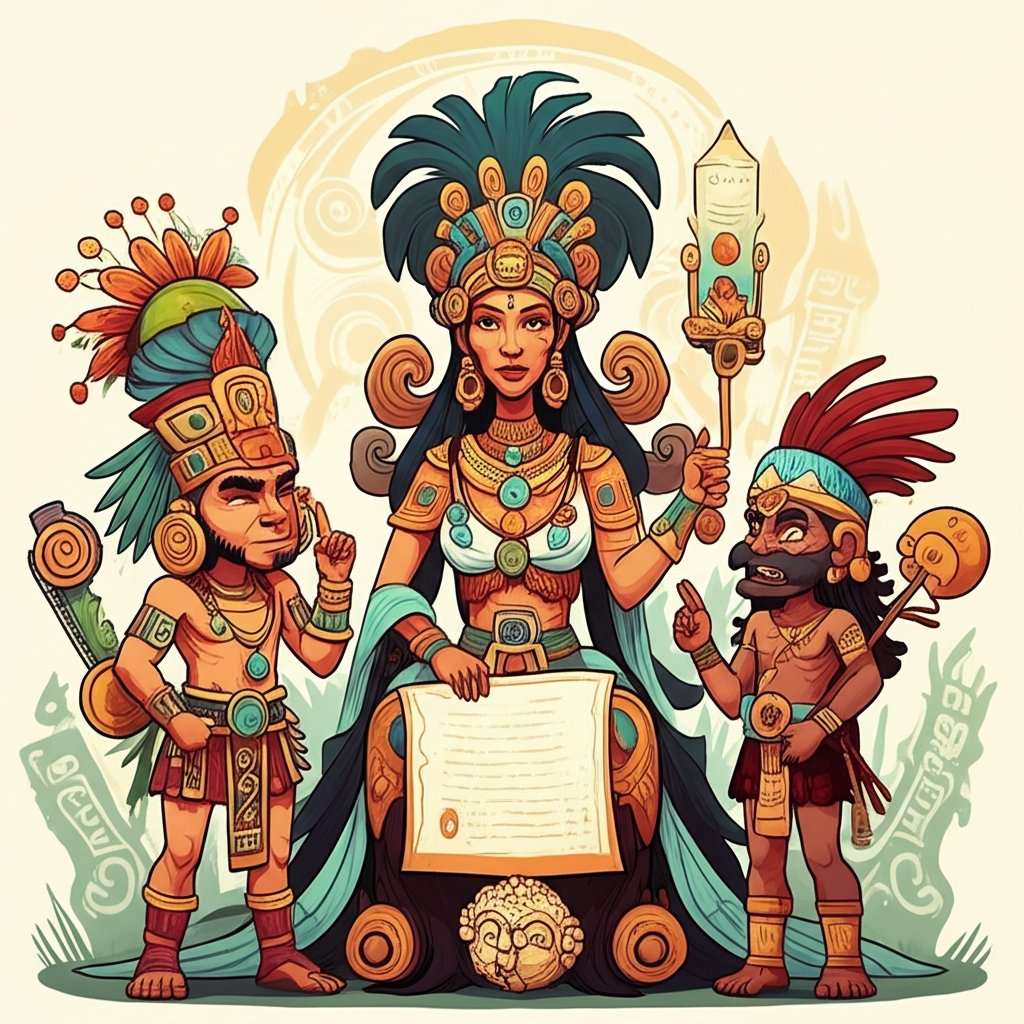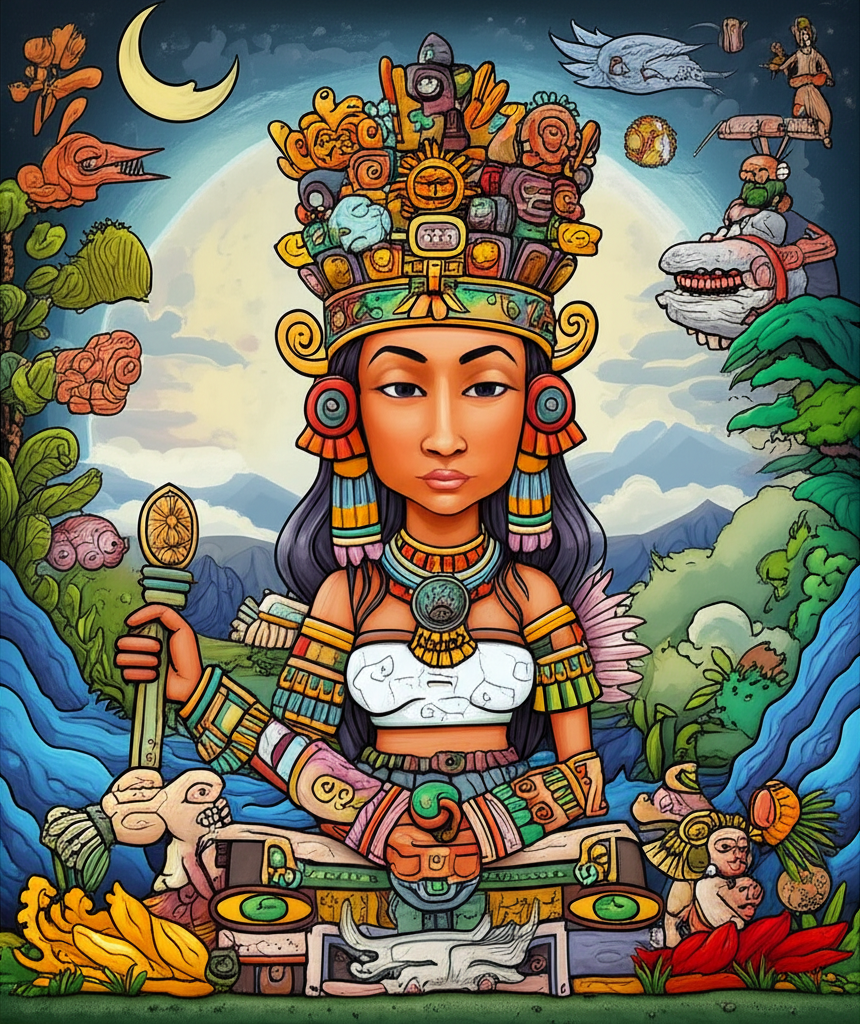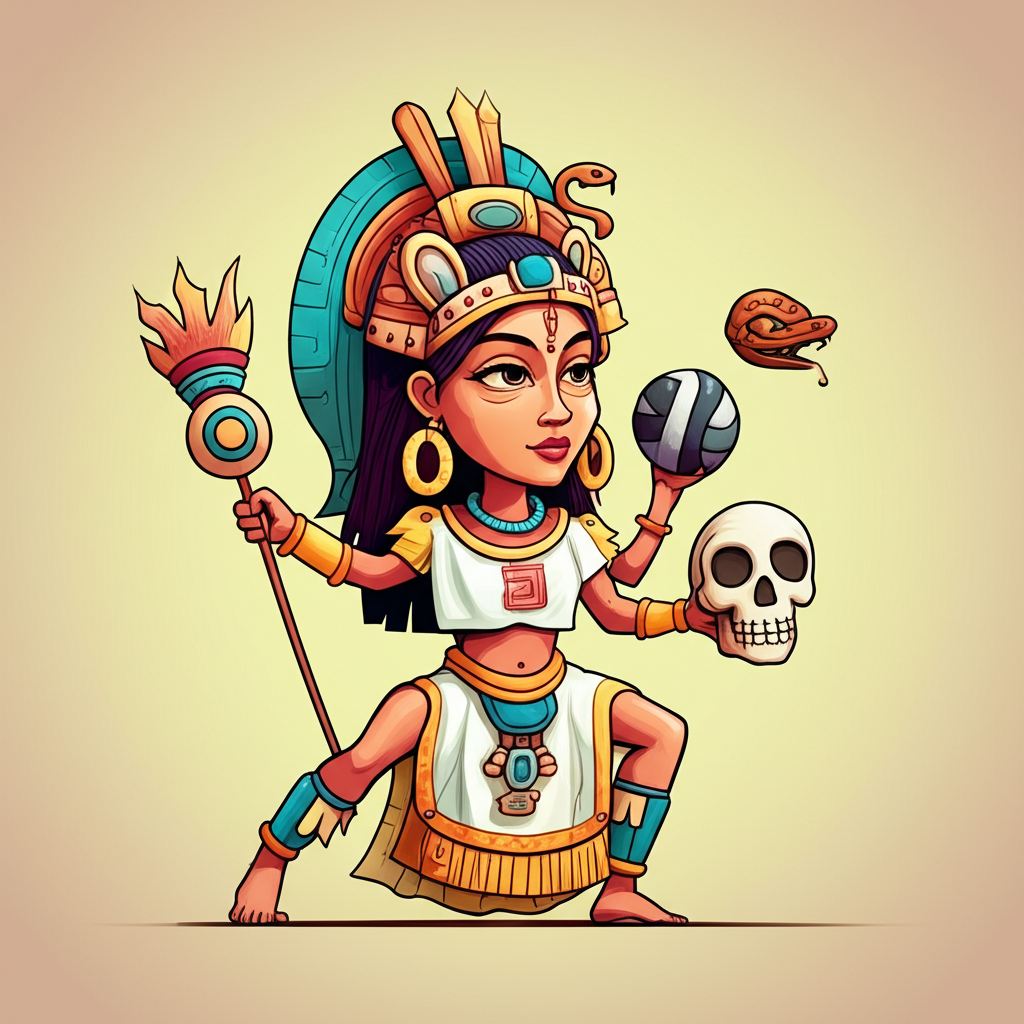
The tale of Fuxi and the Forgotten City is a story woven from the rich tapestry of ancient Chinese mythology. Originating from the cradle of Chinese civilization along the Yellow River, this legend, like many others from that era, seeks to explain the origins of humanity, the foundations of civilization, and the mysteries of the natural world. It is essential to understand that this narrative is a traditional story, passed down through generations, and reflecting the beliefs and worldview of the people who first told it. It is not presented as historical fact or a statement of faith, but rather as a piece of cultural heritage offering insights into the ancient Chinese imagination.
Origins and Cultural Background:
The myth of Fuxi likely arose during the Neolithic period in China, a time when settled agriculture was developing, and communities were forming along the fertile river valleys. This era, spanning roughly from 10,000 BCE to 2000 BCE, was characterized by the development of tools, pottery, and early forms of social organization. People living during this time were deeply connected to the natural world, their lives dictated by the rhythms of the seasons and the bounty (or scarcity) of the land.
Their worldview was animistic, meaning they believed that spirits resided in all things – rocks, trees, rivers, and animals. They saw the universe as a complex web of interconnected forces, and they sought to understand and harmonize with these forces through rituals, divination, and storytelling. Myths like that of Fuxi served as a way to make sense of the world, to explain the unexplainable, and to transmit cultural values and knowledge from one generation to the next. The concepts of order versus chaos, humanity’s place in the cosmos, and the importance of leadership were central themes.
Character Description: Fuxi
Fuxi (伏羲), often depicted as having the body of a man and the tail of a serpent or dragon, is a pivotal figure in Chinese mythology. He is revered as one of the Three Sovereigns (三皇), legendary rulers who brought civilization to humanity. The serpentine tail is a significant attribute, symbolizing his connection to the earth, to primal forces, and to the cyclical nature of life and death.
Symbolically, Fuxi represents creation, innovation, and the establishment of order. He is credited with inventing writing, fishing nets, musical instruments (specifically the guqin, a zither-like instrument), and the practice of divination using the eight trigrams (bagua) derived from the I Ching (Book of Changes). These inventions are not to be taken literally as solely his individual creation, but rather as symbolic representations of the gradual development of these skills and technologies within early Chinese society. Fuxi’s attributes are not endorsements of his divinity, but artistic representations of the qualities and achievements attributed to him in the mythology.
Main Story / Narrative Retelling:
In the dim mists of time, after a great flood had ravaged the earth and scattered humanity, Fuxi emerged. The world was in chaos. Survivors clung to the highest mountains, their memories of a structured life washed away by the deluge. It was a time of hardship, where hunting was a desperate gamble and communication a series of grunts and gestures.
Fuxi, with his keen mind and serpentine grace, felt a deep empathy for the struggling survivors. He saw their fear and their lack of understanding. One day, while wandering along the Yellow River, he observed a spider weaving its intricate web. Inspired by the spider’s skill, Fuxi began to experiment with knots and cords, eventually creating the first fishing net. This innovation allowed people to catch fish more efficiently, providing a stable food source and reducing the constant struggle for survival.
Driven by his desire to bring order to the world, Fuxi looked to the heavens. He observed the patterns of the stars, the cycles of the moon, and the changing seasons. Through careful observation, he developed a system of symbols – the eight trigrams – to represent the fundamental forces of the universe: heaven, earth, water, fire, wind, thunder, mountain, and lake. These trigrams, arranged in different combinations, formed the basis of the I Ching, a system of divination used to understand the flow of events and make informed decisions.
But Fuxi’s greatest discovery was the Forgotten City. Legend says he followed a sacred white turtle that emerged from the Yellow River. The turtle led him to a hidden valley, shrouded in mist and protected by towering cliffs. Within this valley lay the ruins of a magnificent city, built by a civilization that had perished in the great flood. The city was filled with strange artifacts, intricate carvings, and ancient texts.
Fuxi spent years studying the ruins, deciphering the forgotten language, and learning from the wisdom of the lost civilization. He discovered the principles of agriculture, the art of writing, and the secrets of music. Armed with this knowledge, Fuxi returned to his people and began to teach them. He showed them how to cultivate crops, how to build houses, how to write their history, and how to express their emotions through music. He established laws and customs, bringing order and harmony to their lives. And so, Fuxi, the man-serpent, became the first emperor, the bringer of civilization, and the restorer of a forgotten past. He showed humanity the path towards a more prosperous future, built upon the foundations of wisdom gleaned from a lost and ancient civilization.
Symbolism and Meaning:
The myth of Fuxi carries a wealth of symbolism. The flood itself often represents chaos and the destruction of the old order, while Fuxi’s emergence symbolizes the hope for renewal and the rebuilding of society. His inventions – the fishing net, the trigrams, writing, and music – represent the essential elements of civilization, the tools that allow humanity to thrive and progress.
The Forgotten City serves as a metaphor for the accumulated knowledge of the past, a reminder that progress is built upon the foundations laid by previous generations. It also suggests that civilizations can rise and fall, and that knowledge can be lost if not preserved and passed on. Fuxi’s role in rediscovering this knowledge highlights the importance of learning, innovation, and the preservation of cultural heritage. The story, in its essence, is about the triumph of order over chaos, the power of knowledge, and the importance of leadership in guiding humanity towards a better future.
Modern Perspective:
The myth of Fuxi continues to resonate in modern Chinese culture. He is often depicted in artwork and celebrated in festivals. His story has been adapted into various forms of media, including literature, movies, and video games. In these modern interpretations, Fuxi is often portrayed as a heroic figure who embodies the values of wisdom, innovation, and leadership.
In cultural studies, the myth of Fuxi is analyzed as a reflection of ancient Chinese beliefs, values, and social structures. It provides insights into the development of early Chinese civilization and the cultural forces that shaped it. The story is also examined in the context of comparative mythology, exploring parallels with creation myths and cultural hero narratives from other cultures around the world.
Conclusion:
The Chronicle of Fuxi and the Forgotten City is a testament to the power of storytelling and the enduring appeal of mythology. It is a cultural artifact, a window into the beliefs and values of ancient Chinese society. It is important to remember that this is a traditional story, not a statement of fact or a religious doctrine. It is a product of the human imagination, a way of making sense of the world and transmitting cultural knowledge.
As Muslims, we recognize that only Allah is the true Creator and Sustainer of the universe. These ancient tales offer us insight into the diverse ways in which different cultures have sought to understand the world around them. They remind us of the importance of preserving cultural heritage, fostering imagination, and appreciating the rich tapestry of human storytelling traditions. The story of Fuxi, like many other myths, serves as a reminder of our shared human history and the enduring power of the human imagination.
